kategori film bahasa bosnian
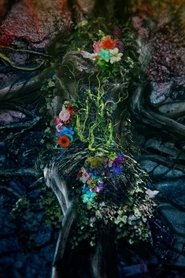 The year is 2040 and Sarajevo is...
The year is 2040 and Sarajevo is...Gaia 2024
The year is 2040 and Sarajevo is covered with thick clouds and relentless plastic rain. Sara has a chance to save the city when she feels a connection with the emerging black soil.
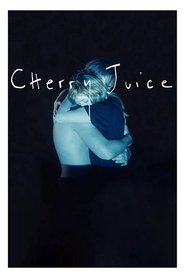 A young German actor Niklas is...
A young German actor Niklas is...Cherry Juice 2023
A young German actor, Niklas, is preparing the biggest role of his lifetime to be filmed in Sarajevo, where a screenwriter, Selma, is living in the shadow of the Bosnian War. After Niklas arrives only to learn that his big break has been cancelled, he decides to stay in Sarajevo for New Year’s Eve, where he crosses paths with Selma. Their worlds collide, and the two experience a night together that will change their lives forever.
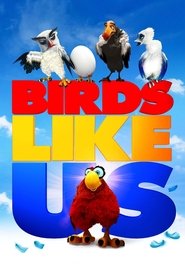 The story follows a group of...
The story follows a group of...Birds Like Us 2022
The story follows a group of birds on a journey where they try to find a better life for themselves and the ones they love.
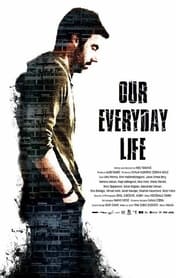 Family Susic lives everyday Bosnian story...
Family Susic lives everyday Bosnian story...Our Everyday Life 2022
Family Susic lives everyday Bosnian story. Father Muhamed (63) is employed in a reputable company; mother Marija (60) is retired. Son Sasa (35), who spent the war in Army of Bosnia and Herzegovina, lives with his parents, while their daughter Senada (40) lives in Slovenia. Their life begins to fall apart because of father's dissatisfaction after his company is sold on the stock exchange, Sasa's negligent attitude towards work and family, Marija's breast cancer diagnose. When problems begin to line up Muhamed and Sasa realize that actually only family is important, that it is man's last oasis
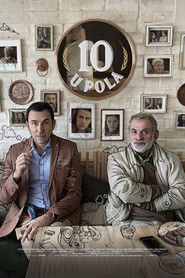 Set in Sarajevo in May 2021 the...
Set in Sarajevo in May 2021 the...Not So Friendly Neighborhood Affair 2021
Set in Sarajevo in May 2021, the city's famous Old Town tries to recover after a difficult pandemic year. When a visitor from Zagreb comes looking for the best kebabs in town, a harmless gesture causes the disintegration of the business and private lives of several people.
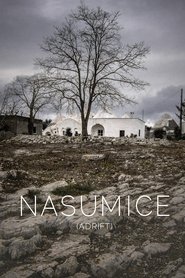 Italy 1994 The war in the Balkans...
Italy 1994 The war in the Balkans...Adrift 2018
Italy, 1994. The war in the Balkans drags on with no end in sight. Elvis, a young man from Sarajevo, is taking pictures of tourists with his Polaroid camera to get by. After his camera is stolen, Elvis decides to visit Rodolfo, a stranger met by chance in Venice. Their brief and lonely encounter unfolds in the timeless landscape of whitewashed towns, green hills and olive trees of southern Italy.
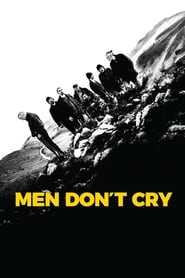 The armed conflicts of the 1990s...
The armed conflicts of the 1990s...Men Don't Cry 2017
The armed conflicts of the 1990s not only visibly destroyed the land of the former Yugoslavia, but also left the deepest wounds in the memory of each of its belligerent nations. There are as many different interpretations of that bleak past as there are countries affected. It is therefore hard to expect absolute harmony when, less than two decades since the war ended, a diverse group of veterans gathers at a remote mountain hotel for a therapy session over several days. On the contrary, such a dangerously volatile situation can suddenly ignite by just one thoughtless word, or a seemingly dirty look. That’s because the former soldiers, obstinately holding on to their fundamental masculinity and their prejudices, refusing to expose the inhumanity of the atrocities perpetrated. However, this quietness is just about to be broken and hidden emotions are to be faced.
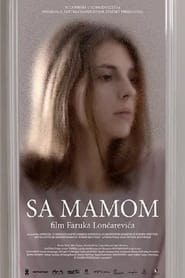 While her middle class socialist family...
While her middle class socialist family...With Mom 2013
While her middle class, socialist family is falling apart around her, Berina, a young artist, tries to cope both with her awakening sexuality and her mother Jasna's imminent death. Her father cannot accept the fact that life is already happening without his wife. Her younger sister Luna cannot or does not want to grow up. For everybody's sake, Berina wants to save her mother's life and her family the only way she can - through art, and through magic.
 Film uses the aesthetics of cell...
Film uses the aesthetics of cell...A Cell Phone Movie 2011
Film uses the aesthetics of cell phone cameras, which the director used after he was diagnosed with angina and his doctors recommended fast walking. He has transformed the 3,000 kilometers he walked over three years into a collage of playful, experimental, and lyric moments and family and social situations, all seen with a sense of tenderness and irony.
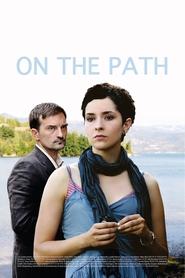 Loving young couple Luna and Amar...
Loving young couple Luna and Amar...On the Path 2010
Loving young couple Luna and Amar try their best to overcome unexpected obstacles that threaten their relationship. After Amar's dramatic change in a fundamentalist community, Luna tears herself apart searching if love is truly enough to keep the couple together on the path to a lifetime of happiness...
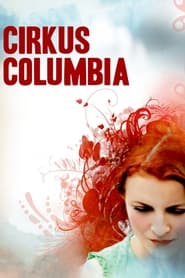 Bosnia and Herzegovina 1991 After the fall...
Bosnia and Herzegovina 1991 After the fall...Cirkus Columbia 2010
Bosnia and Herzegovina, 1991. After the fall of the communists, Divko Buntić, who has lived in exile in Germany for the past twenty years, returns to the village where he grew up, intent on reclaiming ownership of his family home, driving a swanky Mercedes and accompanied by his young bride; by Bonny, his lucky black cat; and with pockets full of money.
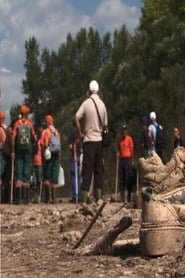 In august 2010 during the repair of...
In august 2010 during the repair of...A Day on the Drina 2010
In august 2010, during the repair of the turbines of the hydroelectric power plant Bajina Bašta, body remains of more than 250 incomplete skeletons were found in the mud of the artificial lake Perućac; the remains belong mostly to the Bosniaks killed by members of the army of Republika Srpska in Višegrad and its surrounding area in the period of 1992/95.
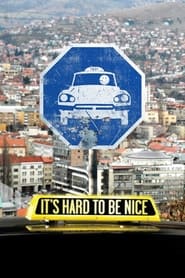 Story about a fortysomething Sarajevo taxi...
Story about a fortysomething Sarajevo taxi...It's Hard to Be Nice 2007
Story about a forty-something Sarajevo taxi driver named Fudo (Saša Petrović) who decides to take control of his own destiny. Fudo doesn't earn much, so he supplements his income by offering tips to the local criminal syndicate and turning a blind eye to their nefarious dealings. One day, after offering a particularly bad bit of advice to a violent gangster, Fudo is badly beaten. When Fudo's wife Azra (Daria Lorenci) discovers what has happened, she decides to take the couple's infant son and move out. Now determined to win his wife back and restore peace in the home, Fudo decides to go straight. But cleaning up his act isn't going to be easy, because after borrowing enough cash from black market dealer Sejo (Emir Hadžihafizbegović) to purchase a van and then refusing to aid him in any underhanded dealings, the only person willing to cut him any slack is the sympathetic Azra.
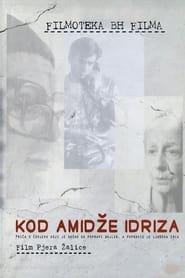 Fuke visits his uncle Idriz and...
Fuke visits his uncle Idriz and...Days and Hours 2004
Fuke visits his uncle Idriz and aunt Sabira to fix a broken boiler. He soon finds out there's a lot more that needs to be repaired. Idriz and Sabira aren't ready to accept the loss of their only son in the Balkan war, seven years earlier. When Fuke's car refuses to start, Fuke has to stay over in their house. He meets a lot of old friends and neighbors there.
 An alcoholic Bosnian poet sends his...
An alcoholic Bosnian poet sends his...The Perfect Circle 1997
An alcoholic Bosnian poet sends his wife and daughter away from Sarajevo so they can avoid the troubles there. However, he is soon descended upon by a pair of orphaned brothers. The brothers have escaped a massacre in their own village and have come to the Bosnian capital in search of a long lost Aunt. The poet befriends the boys and together they try to survive the horror of the siege of Sarajevo.
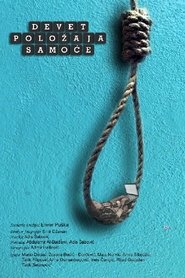 Nine characters gathered around their own...
Nine characters gathered around their own...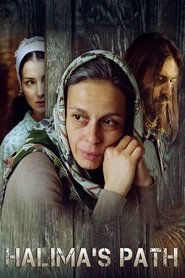 In order to recover the body...
In order to recover the body...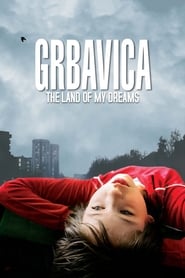 A woman and her daughter struggle...
A woman and her daughter struggle...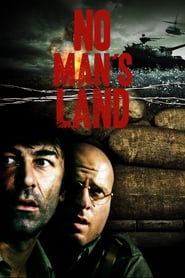 Two soldiers from opposite sides get...
Two soldiers from opposite sides get...